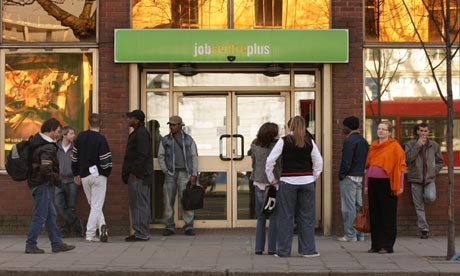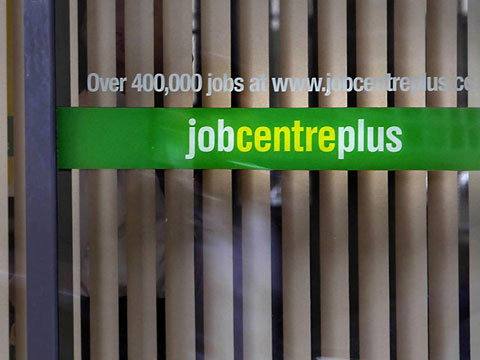Britain must do more to get companies investing and banks lending if it wants to turn around a stagnant labour market that has seen long-term unemployment double since the financial crisis began.
That is the warning from the International Labour Organisation (ILO), which said in its annual World of Work report that the UK is trapped in the "vicious spiral" of falling real wages and depressed investment and faces a very real threat of rising child poverty.
At 7.8% the UK unemployment rate is relatively low in comparison to other EU economies, but the ILO notes that it has failed to come down for almost a year. Unemployment is also well above the pre-crisis level of 5.2% at the end of 2007. Any growth in employment has only been enough to accommodate a growing labour force, and has not made up for jobs lost when the economy faltered.
The author of the ILO report, Raymond Torres, said the UK faced serious long-term threats if it fails to give more help to vulnerable groups, such as single parents, to get back into work.
"In the UK there is a risk of poverty among children that we may not see much now but that could have serious long-term effects," said Torres, the director of the ILO's International Institute for Labour Studies.
The ILO's recommendations for the UK echo its concerns for all advanced economies where it believes a recovery in corporate profitability and stock markets does not appear to be resulting in strong jobs growth. Instead unspent cash is piling up in the accounts of large enterprises while executive pay is also rising.
It calls on the UK to implement measures to encourage job-friendly investment, particularly at "job-rich" small and medium-sized businesses, with schemes such as credit guarantees and tax incentives. It also says executive pay packages should no longer reward short-term goals that can encourage harmful management practices.
Banks are also seen as key and need to act as "an enabler of the real economy", the ILO says. Its comments coincided with official figures that showed lending to businesses has continued to contract, even though the Bank of England has handed out £16.5bn to lenders since July under its flagship funding for lending scheme.
Looking behind the relatively low unemployment rate for the UK, the report notes that more than 60% of jobs created since the third quarter of 2009 have been either part-time or temporary. It also notes a sharp rise since the start of the financial crisis in the number of people saying they could not find full-time work.
Long-term joblessness is also a growing problem, the ILO report finds. The number of people looking for work for over a year has more than doubled since 2007, up from 391,000 to more than 902,000. As a share of total unemployment in the first quarter of 2013, more than a third of all unemployed people were in search of employment for more than a year.
Torres also highlights the problem of inequality in the UK. Chief executive pay remains close to where it was before the financial crisis, while the vast majority of workers have seen their wages fall in real terms. In 2011 the chief executives of the 15 largest firms in the UK earned on average 238 times the annual earnings of the average UK worker, the report notes.
Against a backdrop of low wage growth and depressed investment, the UK was caught in a vicious spiral, Torres warned. "Stagnating wages are adversely affecting demand, which in turn is dampening real investment, leading to poor job creation – reinforcing weak demand and so on."











